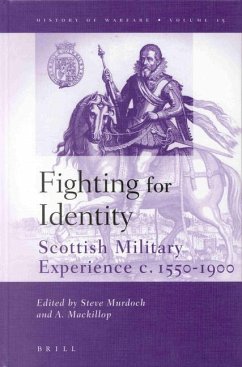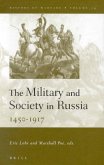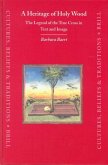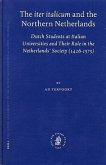This volume examines the impact of military activity upon Scotland's national identity as the country underwent a fundamental transition through domestic centralisation at the turn of the seventeenth century, integration into the United Kingdom in 1707, and as a partner in Britain's global empire during the eighteenth and nineteenth centuries. It is divided into three thematic sections that examine the evolution of Scottish military identity over the early modern period, how the Highland region moved from a relationship of hostility to the Lowland political authorities to the central element in eighteenth and ninteenth century Scottish soldiering, and, finally, how aspects of Scotland's civilian society interrelated with her soldiers.
Hinweis: Dieser Artikel kann nur an eine deutsche Lieferadresse ausgeliefert werden.
Hinweis: Dieser Artikel kann nur an eine deutsche Lieferadresse ausgeliefert werden.








